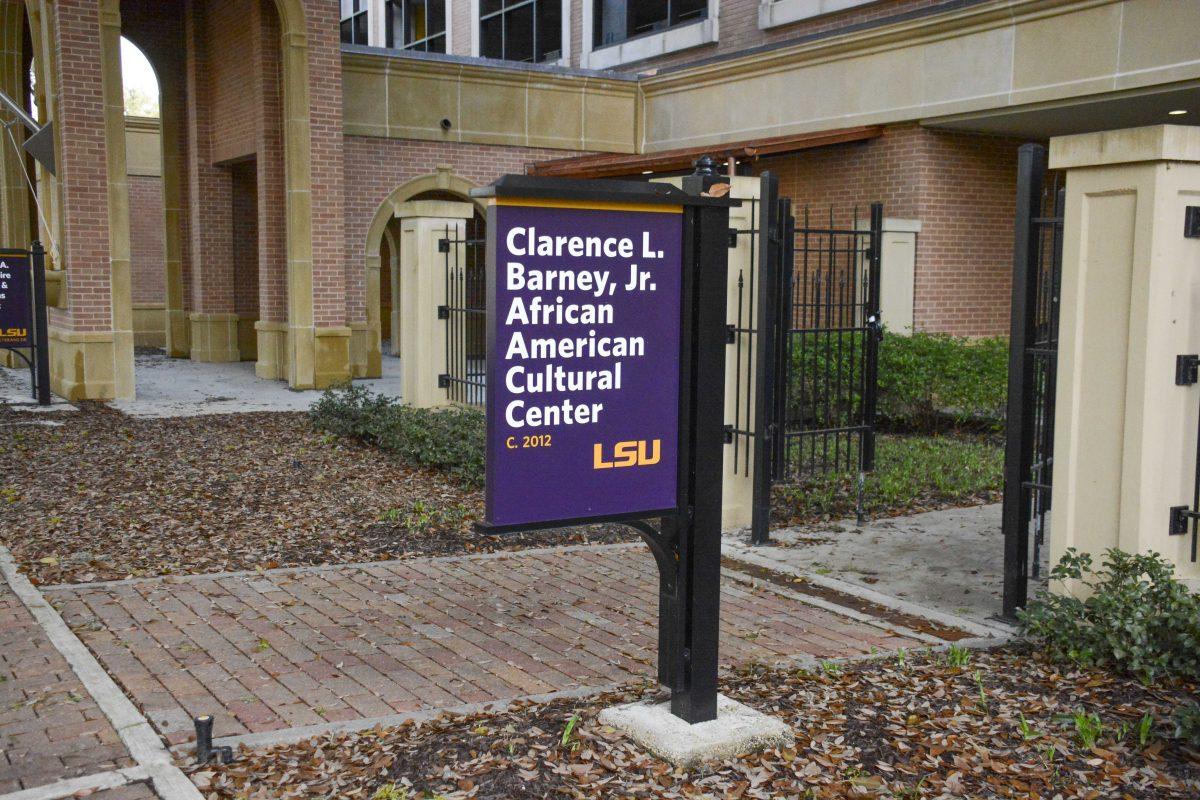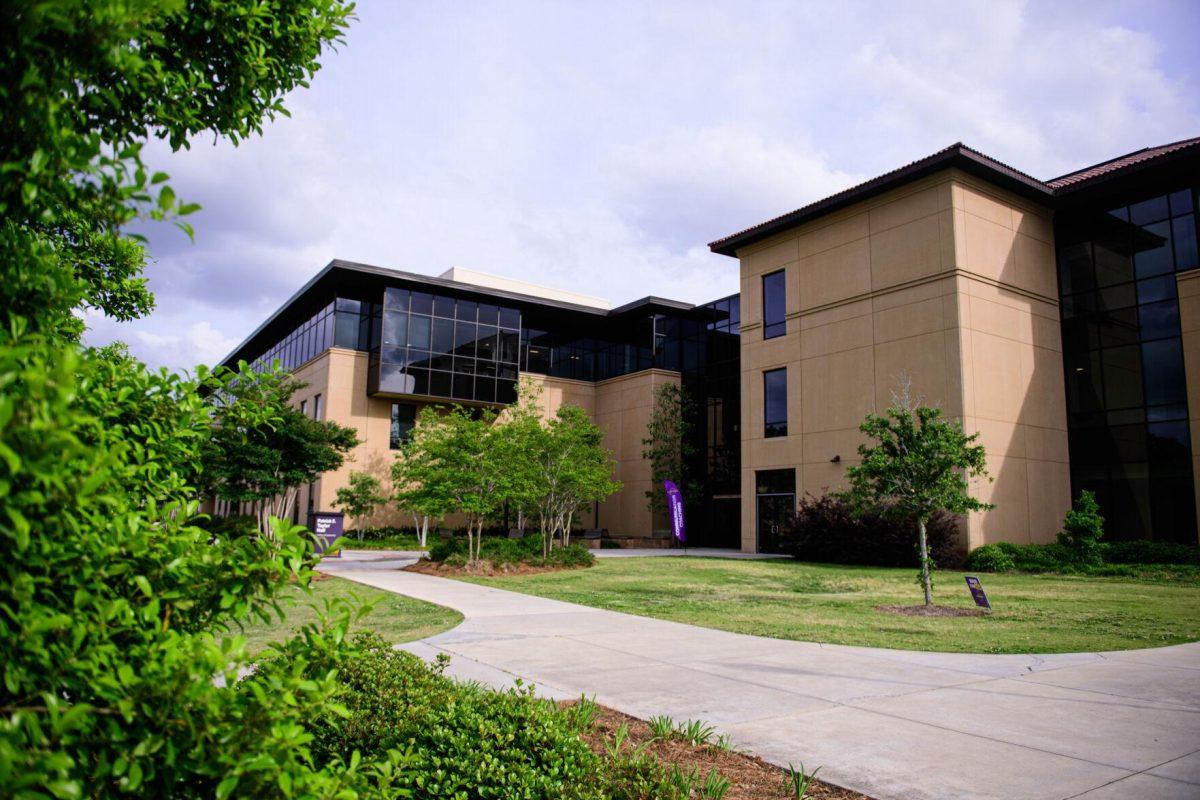The African-American Cultural Center hosted a block party Friday afternoon to kickoff Black History Month.
Marketing senior and co-chair of LSU Black History Month committee Dee Scott said the committee wanted to start the festivities early.
“We just wanted to do something that’s very much a celebration the first Friday of Black History Month,“ Scott said. “Everyone could come out and have a good time.”
Students at the block party ate food and sat around tables laughing, talking and listening to music.
Animal sciences sophomore A’kayla Thomas, who also serves as treasurer of the LSU chapter of the National Association for Black Veterans, said she enjoyed the afternoon’s events.
“I’ve met so many people,” Thomas said. “This has been a really great opportunity.”
Scott said the idea of a day party in between classes was ideal for allowing students to freely come and go as they pleased. The African-American cultural Center, located on the far left side of campus, is convenient for students who wanted to stop by in-between classes.
The event hosted about 10-12 informational booths advertising various student clubs, as well as local representatives from community organizations.
Also present was Alaysia Johnson, mass communication junior and representative for the Black Women’s Empowerment Initiative, a program partnered with the Student Health Center and the Women’s Center to provide free HIV/AIDS testing. The testing took place from 11 a.m. to 1 p.m. in the Women’s Center.
“It’s just really important because in Baton Rouge we have the highest amount of AIDS in the community,” Johnson said.
In 2016, Baton Rouge led the nation for AIDS diagnoses, according to the Centers for Disease Control and Prevention. Although the numbers of diagnosed cases have dropped drastically over the past few years, Baton Rouge is still ranked at number 10. Additionally, one in seven African-Americans are living with HIV in the U.S. and are unaware of their diagnosis.
A HIV test from the Student Health Center regularly costs $21, but the aim of the partnership is to provide a much-needed service to students free of charge.
Johnson also said she felt like the University could be more supportive of events like the block party.
“I think LSU tries to be supportive,” Johnson said. She points out that while the University boasts its growing diversity on paper, that diversity hasn’t yet translated into inclusivity.
“It seems like it’s just on paper,” Johnson said. “It would be great if our interim president would come out here.”
Interim President Thomas Galligan has previously acknowledged Martin Luther King Jr. Day in an email encouraging students to spend their day off engaging in community service or reflection on Dr. King’s legacy.
“Today, LSU is home to students of every race, ethnicity, and nationality. We are diverse, inclusive, and welcoming to all,” Galligan wrote in the email. “As a university, it is our mission to continue the advancement of society through education, innovation, and progress.”
Each year, a national theme for Black History Month is chosen by the Association for the Study of African-American Life and History. This year’s theme, “African Americans and the Vote,” honors the centennial of the 19th Amendment allowing women to vote, and the sesquicentennial of the 15th Amendment, which granted voting rights to black men.
The theme speaks to the “ongoing struggle on the part of both black men and black women for the right to vote,” according to the ASALH website.
The African-American Cultural Center has a variety of events planned over the month of February, including the Black Business Expo and the Black Minds Matter seminar. More details about the events, including dates, times and locations, can be found on the African American Cultural Center’s website.







